
Photo by Gabriele Holtermann/Sipa USA via AP Images
What a tragic, brutal year. A mismanaged and escalating pandemic, unchecked police violence, the tumult of mass online education, economic freefall, widespread housing instability, a troublingly close and baselessly contested election … the list goes on. Folks are struggling. It’s easy to feel overwhelmed. We need solutions. That’s where Next City comes in.
The practitioners who do this work — and the journalists who write about it — are a constant source of inspiration. In this year alone Next City has published nearly 600 stories. From that deep pool of solutions we have curated 20 of the year’s best ideas, presented here in no particular order of importance.
Consider this slideshow the teaser to our Solutions of the Year print magazine. This 80-page special issue celebrates the projects, people and programs that have responded effectively to the pandemic and have prompted lasting change in cities. As 2020 lurches to a close, we honor those who work for, and demand, a healthier and more equitable world for us all.
Photo by Oscar Perry Abello
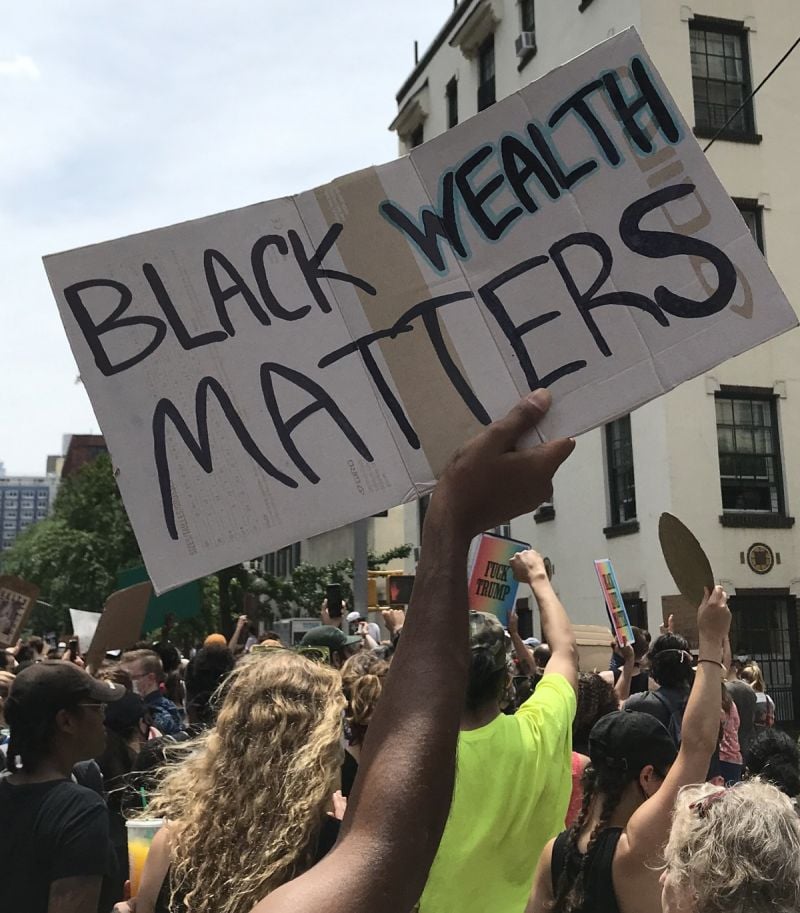
What does “fiscal justice” investing look like? For Activest's Ryan Bowers, it’s calling out racial bias in municipal practices (such as when a city borrows money to pay legal settlements from police violence), and leveraging the collective buying power of investors to pressure governments to wield budgets responsibly. Hear more from Bowers at our year-end webinar, “3 Responses to the Nation’s Reckoning on Racial Injustice.”
MH First co-founder Asantewaa Boykin (Photo by Pete Rosos)
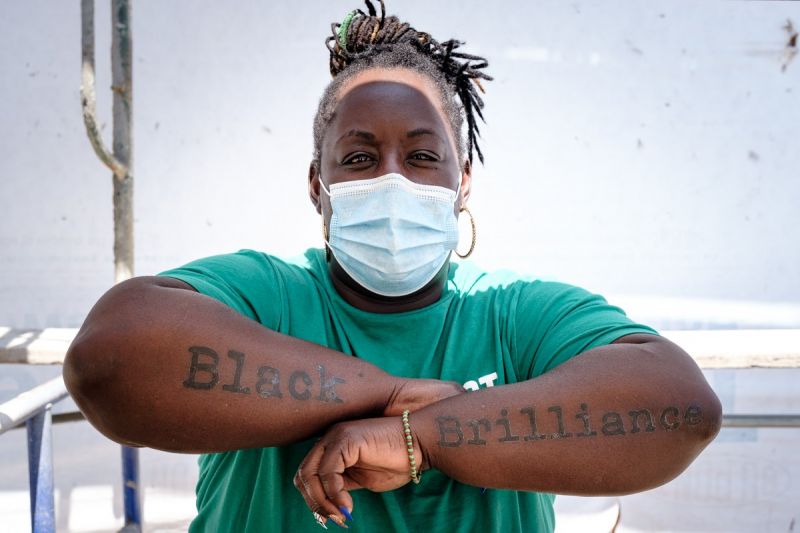
What does it mean to defund or abolish the police in practice? We interviewed Newark Community Street Team Member Aqeela Sherrills about how safe passage, case management and high-risk intervention helps to reduce crime. And our Next City Solutions of the Year Keynote Address featured Cat Brooks and Asantewaa Boykin, who cofounded MH First, a program in Sacramento and Oakland that sends trained volunteers to respond to people having psychiatric or substance-use emergencies.
Photo by Georgia Fort/Unicorn Riot
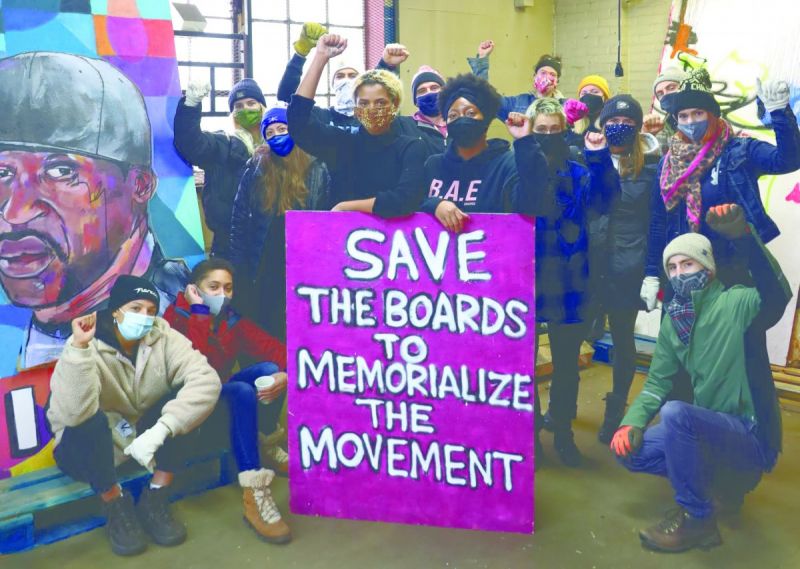
Rockford’s City Hall (Photo by Teemu008)
Photo courtesy Inquilinxs Unidxs Por Justicia - United Renters For Justice
Cinnamon Janzer reports on an intrepid collective of Minneapolis renters, dubbed the Corcoran Five, who helped to win a landmark $18.5 million class-action settlement for thousands of tenants — the largest of its kind in Minnesota history. And in May of this year, the group signed an agreement to purchase their five apartment buildings from the landlord, which will be converted to a tenant-run co-op. According to one member, “We just got tired of the repairs not being done, and felt like we could be our own landlords.”
Photo by Richard Newton; courtesy Park in a Truck
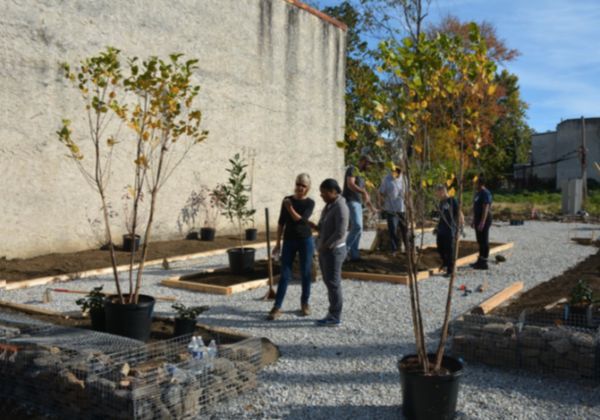
Hannah Chinn explores the simple idea behind Philadelphia’s Park in a Truck program: Give local residents the resources and training to design, build and maintain parks on unused land in their own neighborhoods. Each park is constructed on top of the ground, without fencing, footings or foundation. No special permits needed, and anyone can assemble the pieces. Hear more in our year-end webinar, “How Cities Can Promote Environmental Justice in Underserved Neighborhoods.”
Photo courtesy Dominion Energy
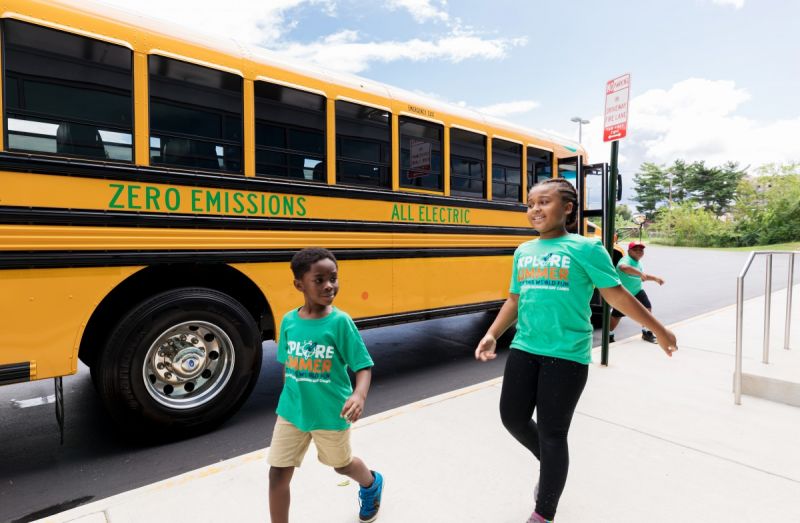
A Richmond Public Schools program deploys electric school buses to transport kids during the day; then, as vehicles charge overnight, they send surplus electricity back to the grid for times of heavy load. Another plus: the program also cuts school district costs.
(Photo by Ruth Hartnup / CC BY 2.0)
Food insecurity has been significantly exacerbated by stay-at-home orders and drastic unemployment. But some innovations made healthy food easier to access — among them using SNAP to order cooked food and online groceries, and allocating soda-tax revenue to emergency grocery vouchers. Hear more on these solutions and others in our end-of-year Solutions for Food Insecurity webinar.
A vacant dorm that will become 63 units for seniors and families. (Photo courtesy California College of the Arts)
San Francisco Public Library acting district manager Jessica Jaramillo (Photo courtesy Jessica Jaramillo)
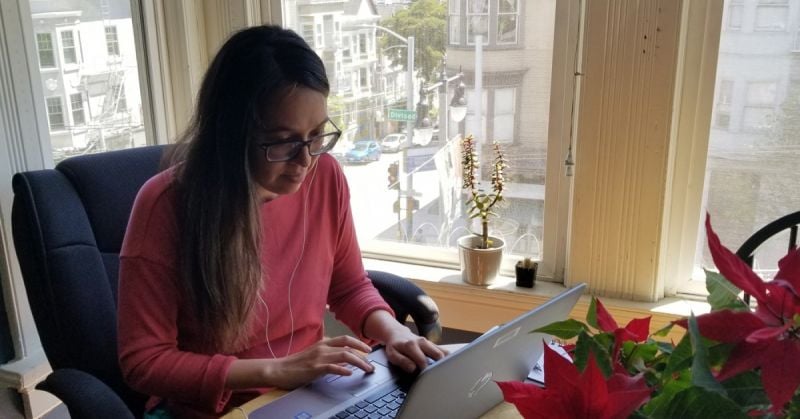
Two worker-owners prep meals for ChiFresh Kitchen. (Photo by Kai Brown, courtesy ChiFresh Kitchen)
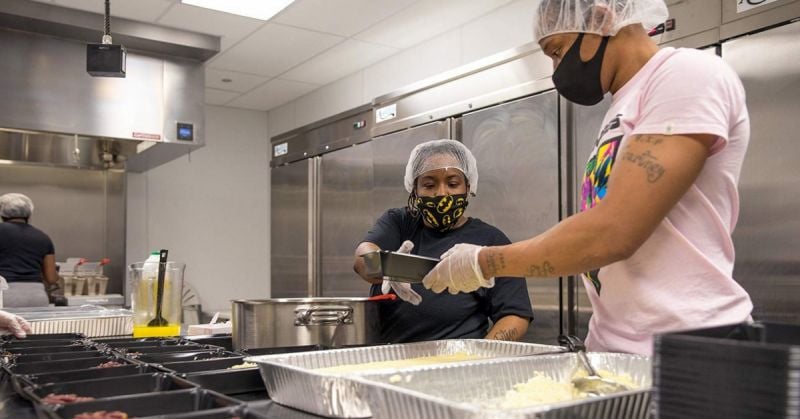
AP Photo/Kevin D. Liles
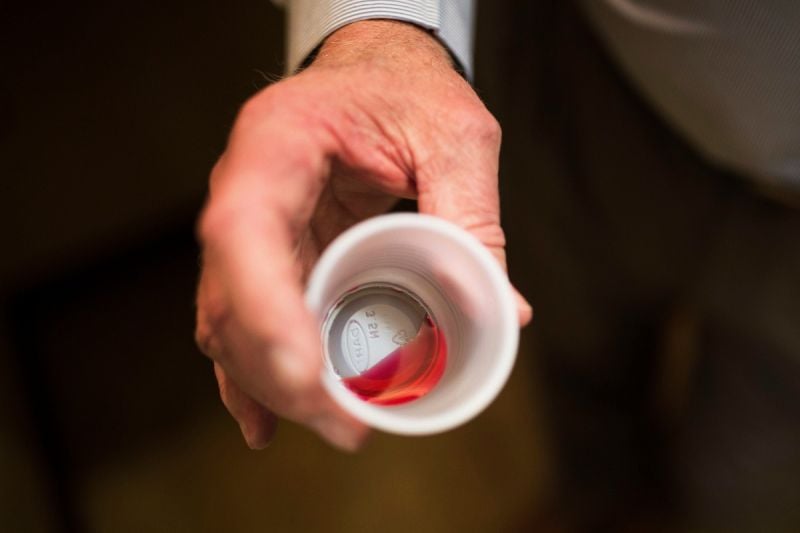
The Cincinnati skyline (AP Photo/John Minchillo, File)
This Cincinnati program, called dividend housing, asks renters to fulfill specified lease requirements such as helping with property maintenance or paying rent on time, in exchange for financial credits that can be exchanged for cash after five years. Hear more about it from Next City’s Emily Nonko in our year-end webinar, “A Next City Reporters Roundtable.”
Photo by Kris Richards
Jason Jones, left, former participant in the Homecoming Project, with hosts Joseph Klein and Tamiko Panzella (Photo by Barbara Kinney/Emerson Collective)
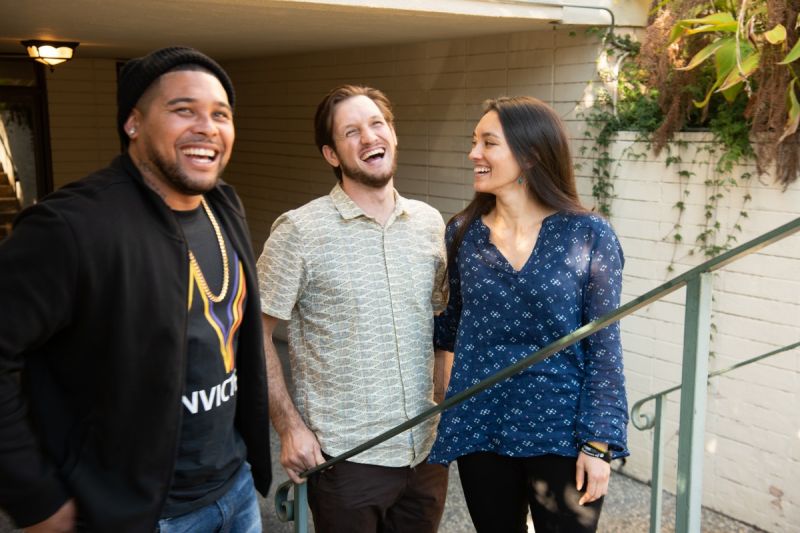
Oakland’s Homecoming Project matches city residents with a bedroom to rent and returning citizens who need safe, secure housing. Connecting formerly incarcerated individuals with support on the outside eases the transition, reduces recidivism and saves taxpayer money on homelessness services or re-incarceration. “We want to stand up ideas, prove they work and show how they could be replicated,” says Alex Busansky, president of Impact Justice, which started the program. “[This] is cheaper than any other housing option the government has.”
Photo Courtesy Bettina Johnson
Attendees of Oakland’s Acta Non Verba summer camp. Photo by Pete Rosos/2812 Photography
Lauren Rothman writes about how some existing mutual aid networks met this pandemic moment, mobilizing through programs in New York, New Orleans and Oakland that increased healthy food access through seed (and seedling) sharing, and training kids and adults to grow their own food and sell it at farmers markets. (Hear more about these projects in our year-end Solutions for Food Insecurity webinar.)
We wrote about Tulsa Remote in January, before the pandemic mandated an instantaneous shift to work-from-home for most office jobs around the country. Since then, many corporations have embraced decentralization. A recent Upwork survey shows up to 12 percent of American workers intend to move because of remote work, meaning Tulsa could prove a model for how smaller cities not only attract a diverse employment pool, but connect new residents to services such as co-working office space and housing resources, all in the name of building community.
Photo courtesy Shoreview Public Works
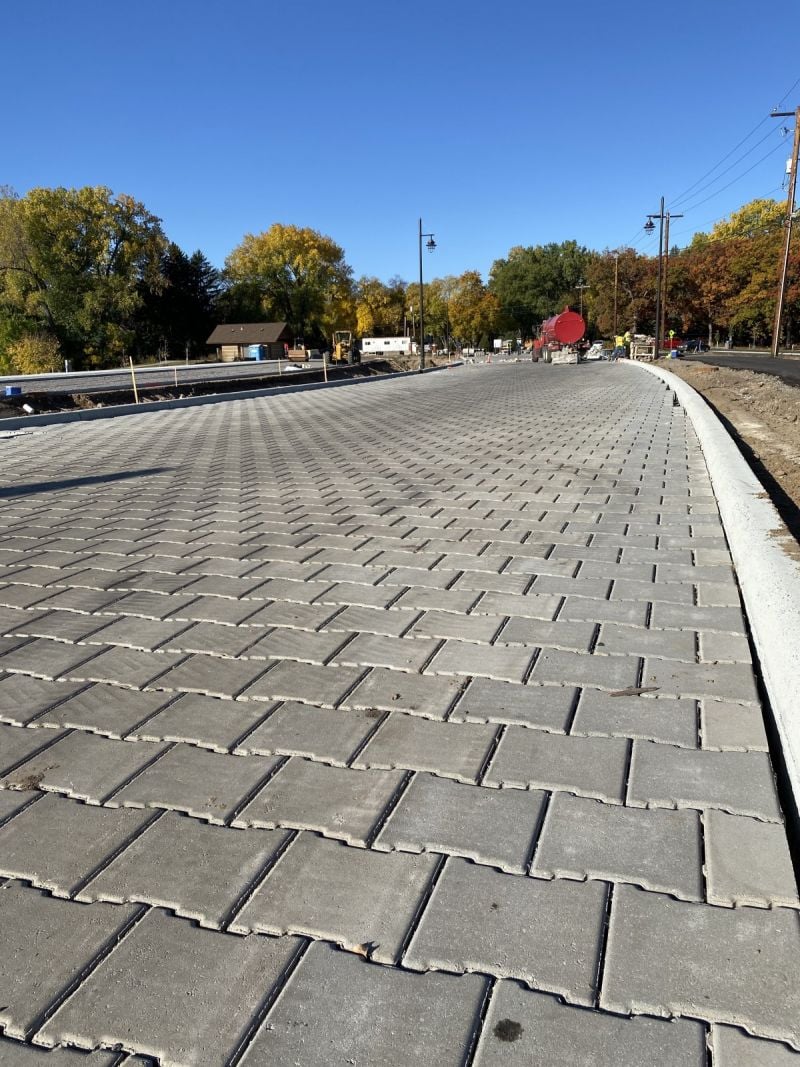
Paving city streets with material that allows water to flow through instead of pool on top minimizes ice formation and the need for road salt. We report on how Shoreview, Minnesota succeeded in improving water quality and cutting down on car-damaging de-icing chemicals.
Photo courtesy City of Quelimane
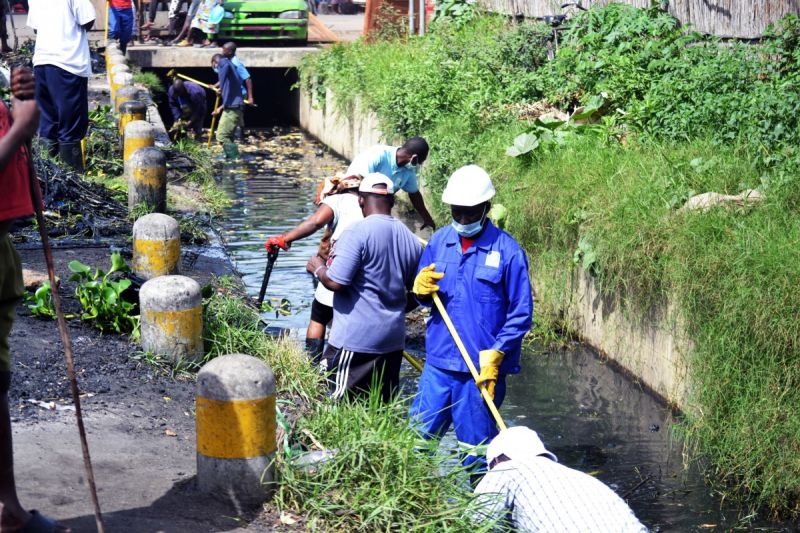
That’s Quelimane, Mozambique Mayor Manuel de Araújo speaking to Next City’s World Urban Forum 10 Correspondent Gregory Scruggs in February, about how long-term mangrove reforestation undertaken through the city’s disaster planning work with the USAID Coastal City Adaptation Project helped to mitigate the damage caused by 2019’s Cyclone Idai.
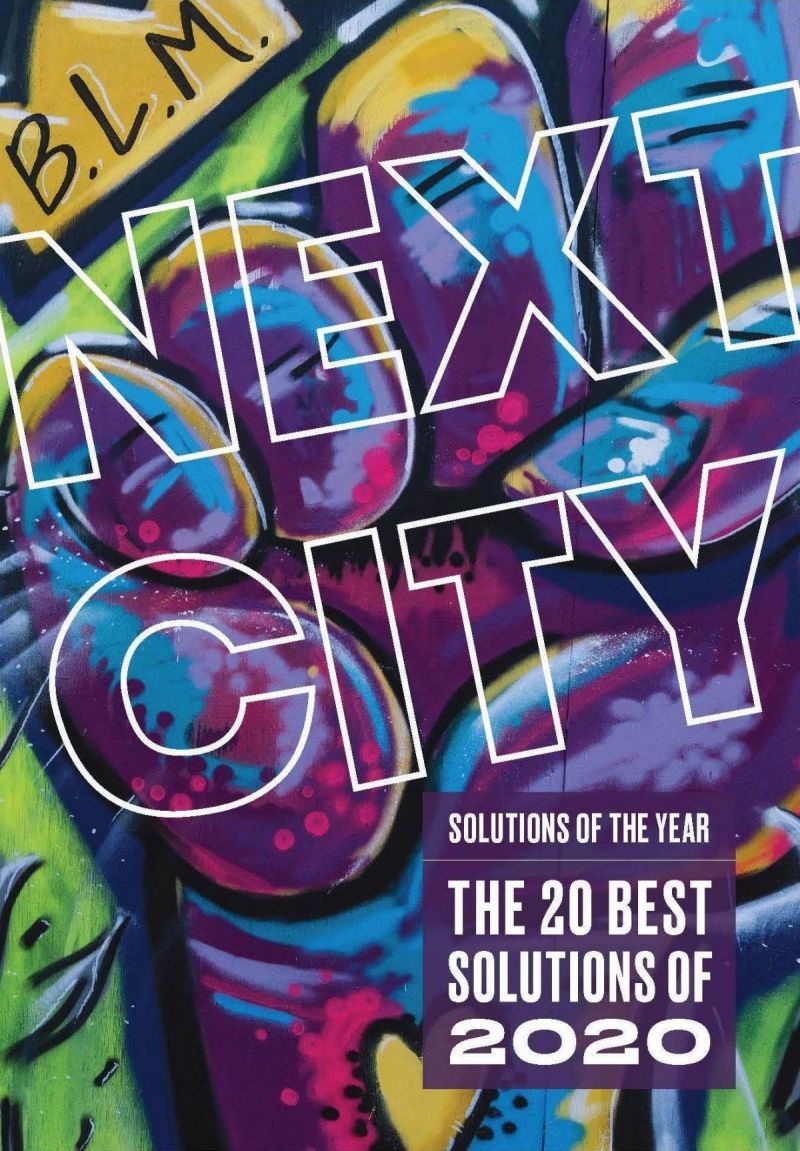
If you’d like a copy of the print magazine to read more about these stories, please consider making a donation in return. Printing and mailing these magazines costs us about $5 per copy. But if you can contribute more to support our journalism, please do.
Thank you for your support. Here’s to another year of spreading the word about equitable change in cities. Stay tuned later this week for "Next City’s Look Ahead: Six Stories to Watch for 2021."